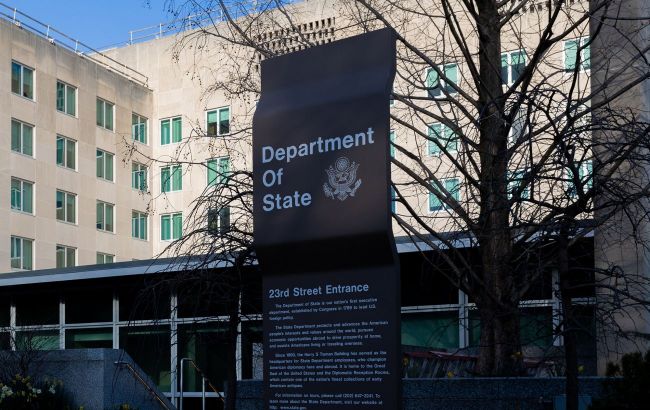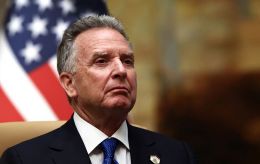Price ceiling is successful part of multilateral sanctions imposed on Russia - USA reveals
 The restriction on Russian oil prices set by the G7 leads to a reduction in Moscow's income (Photo: Getty Images)
The restriction on Russian oil prices set by the G7 leads to a reduction in Moscow's income (Photo: Getty Images)
Eric Van Nostrand, Acting Assistant Secretary of State for Economic Policy, stated that the United States, as before, is confident that the price restrictions on Russian oil set by the G7 contribute to reducing Moscow's revenues and stabilizing energy markets, despite recent price increases, according to Reuters.
In a speech prepared for a London conference, Van Nostrand referred to the price cap as a successful part of the multilateral sanctions regime imposed against Russia due to its invasion of Ukraine. He stated that Washington and its partners are working to prevent any circumvention.
"Our approach has struck at the heart of the Kremlin's most important cash cow. Before the war, oil revenues constituted about a third of the total Russian budget, but in 2023 that number has fallen to just 25%," he said.
The "G7," the European Union, and Australia imposed a $60 per barrel limit on maritime shipments of Russian oil in December of last year. The price cap prevents Western companies from providing services such as transportation, insurance, and financing for oil sold beyond the limit.
Van Nostrand said that Russian data showed federal government revenues from oil sales in the first half of 2023 were nearly 50% lower than the previous year, and Russian oil is trading at a "significant discount" to Brent crude.
According to him, Russian officials also complained about the impact of price restrictions, and the Kremlin had to consider raising taxes on oil exporters to increase revenues, which could worsen the long-term prospects of its oil industry.
Global oil price increase
Van Nostrand said the average declared price of Russian Urals crude oil had fluctuated around $60, the price cap level, despite widespread expectations of higher prices in the second half of 2023, despite recent price increases.
Russia's Ministry of Finance announced this week that the average price of Urals crude oil was around $64.37 per barrel in July, compared to $55.28 per barrel in June.
World oil prices have risen above $80 per barrel in recent weeks after Saudi Arabia announced it would cut production in July, in addition to broader cuts announced by other OPEC+ countries in April.
Effect of the price cap
Van Nostrand said the restrictions continue to limit Russian revenues while providing "non-coalition buyers additional leverage to negotiate prices down."
According to him, any investments by the Russian government in the so-called shadow fleet used to transport oil or in its own insurance companies for sales above the price limit deplete the funds available to support the war in Ukraine.
He said Russian oil traded outside the G7 network continues to be sold at a significant discount compared to Brent oil, and the throughput capacity limits the volumes of business Russia can conduct outside the G7.
"Lower-income countries have been beneficiaries of this stability as they continue to import discounted Russian oil that the G7 no longer takes or benefit from generally lower global oil prices," Van Nostrand said.
However, Van Nostrand said Washington understands that markets can quickly change, and Russia will continue to attempt to evade price restrictions.
"We remain vigilant in monitoring oil markets and the whole coalition remains focused on enforcing our sanctions," he said.

